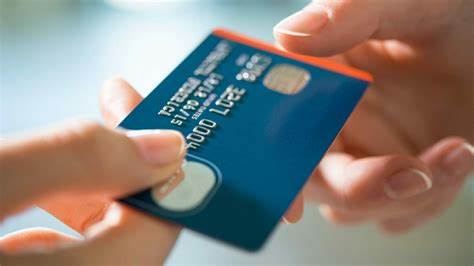Due to the recent economic downturn, people are increasingly dissatisfied with banks. High interest rates, credit card fees and poor customer service make them urgently demanding change and better treatment. The recent 2009 credit card bill is a step in the right direction, but it is not an all-encompassing solution.

Developing good credit habits can be an important part of a safe financial future - so how do you get it? First, open a credit line like a credit card, especially those designed for people who are new to credit cards, then build your own credit history. Consider these five ways to make the most of your credit card to improve your credit score.
Let autopay be your friend! Spend on budget so you can pay the full balance at the end of the month – the Discovery Account tool can help you get out of trouble. This is key because timely bill payments account for 35% of most credit scores. "Common Wisdom" once said that if you only pay the minimum amount and holding a balance on your card, then your credit score can improve, but it turns out that this is more of a city legend: carrying a balance of interest, this may The new cardholder will be higher, and you will eventually pay the balance plus the balance of interest. If you do not pay the minimum fee, you may be charged a late fee.
2. Use your credit card carefully
Although you may want to buy a full-size refrigerator for the dorm and take a new credit card for a ride, it is best to start small. Try to use less credit cards and spend less. You might even want to take some of your small, monthly regular purchases - think of music and TV streaming services and automate them. This will keep your credit card active and will keep your spending within your capabilities.
3. Monitor your debt ratio
A debt-to-credit ratio, also known as credit utilization, is how much your total credit you use each month. For example, if you have a credit card with a limit of $2,000 and you have already spent $1,000, then your debt-to-credit ratio is 50%. You want to keep this number below 30%, but if you have to exceed this number from time to time, credit cards can have a big impact on unplanned expenses. Really, all this has to go back to the budget!
4. Only apply for the credits you need
When you first start building your credit score, you might think that opening a bunch of accounts will make your credit scores higher and faster. In fact, this may have the opposite effect. First, you need to know the difference between soft and hard queries. A soft query is when a business checks your credit report to pre-screen you. Depending on the balance, they probably won't affect your credit score. On the other hand, a difficult investigation, or a survey conducted as a result of your application, will affect your credit score. That's because the lender thinks you might have applied for too many loans because you don't have the money to pay for your expenses.
The query is usually 10% of your credit score. If there are too many hard queries, this may cause your credit score to drop a few times and may result in a rejected application. That's because the lender thinks you might have applied for too many loans because you don't have the ability to pay.
5 Long-term commitment
Considering the balance between quality and quantity, one or two good credit cards, which you use often and responsibly, may be more helpful than trying to track a few cards, such as four or more cards. In addition, according to credit karma, a person's long credit history indicates that the lender has experience in using credit. This is a good thing because they use this information to determine the likelihood that you will repay the loan. Also consider closing a credit card may increase your debt-to-credit ratio, thereby damaging your credit score - another reason for finding the right card for you and sticking with it.


